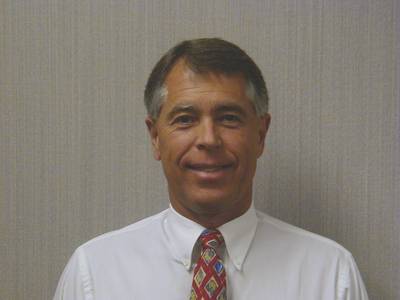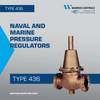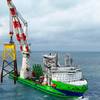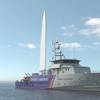Interview: David C. Hanby, Jr., President & COO McDonough Marine
David C. Hanby, Jr., President & COO McDonough Marine shares with readers of MarineLink.com his insights on key market drivers for the coming year.
What legislative/political issue do you count as the most important for the marine industry in the next few years?
DH: Effective funding of infrastructure improvements of the waterway facilities our industry depends on to provide efficient, safe, environmentally friendly transportation of our nation's commodities. While the government seems determined to increase the tax burden on our industry, they have not acknowledged that the processes currently used to spend those contributions are broken and must be corrected. Serious consideration must be given to determine why it takes so much longer to build new lock structures than in the past. Certainly, project management by the Corps of Engineers can be improved, and yet, the fault does not solely fall there. A better method of project funding must be considered by the legislative bodies to allow construction projects to proceed to conclusion.
While it was refreshing to see the WRDA bill passed in the last Congressional session, funding of approved projects is yet to be in place. Replacement of outmoded locks, like the and the system and efficient renovation of existing structures is critical for our marine transportation system. Our nation cannot afford the impact of the closure of our waterway system caused by a failed lock structure. Industries using just-in-time supply models are affected by river closures, forcing them to look for other transportation modes, increasing costs, which are passed on to consumers. This also impacts traffic congestion, already problematic in our nation. With the Federal Government supporting movement from overburdened highways to waterways with programs such as the Short Sea Shipping Program, it is just as important to make sure the waterway system can handle increased traffic that may result.
If you could change or improve one policy in the federal government that affects your business's bottom line, what would it be?
DH: While it may not directly affect all of our particular markets, attacks against the Jones Act for business in the Gulf of Mexico Oil & Gas industry remains a frustrating problem for us. Work associated with Oil & Gas Exploration, Development and Production has long been protected under Jones Act regulations. Yet, Customs & Border Protection has decided that the installation of pipelines to connect wellheads, platforms and facilities in the Gulf of Mexico are not integral to this process and can therefore be serviced by non- Jones Act compliant vessels. This is particularly frustrating when there are flag compliant vessels available for this work. Because of these prior rulings, no further oversight of the use of non-compliant vessels is required.
C&BP has procedures in place to allow companies to request a ruling whether a particular proposed operation constitutes legal use of foreign built vessels in coastwise trade. The requesting party provides all of the information used in formulating a decision. This process does not provide any mechanism to verify the information being offered or to allow for a comment period from those flag vessel owners that will be likely affected by such rulings. Once a ruling is published it is very unlikely to be successfully challenged. This process is not set up to favor flag preferences, one of the backbones of the Jones Act.
There should be meaningful change to the Jones Act waivers program to effectively return the focus on protecting domestic coastwise activities.
How is your company investing today to build a better future?
DH: McDonough Marine has looked at several areas of our business that are important to the future of our continued success in the marine industry. Personnel development, asset replacement, technological upgrades and diversification of business lines are the areas we have identified as keys to this success. Our company, and I believe many others in our industry, experienced a period of time during the 1980's and early 1990's where few, if any, vessels were built and hiring practices were slowed because of the dire times we were working through. This has caused both a bubble in the age distribution of barges in our fleet and in our personnel.
We are cautiously investing in barges to address that void, anticipating the retirement of many vessels that are over thirty years old. Unfortunately, halted construction during that slow period has created a lack of "middle age" barges. Fleet replacement is important, but we must be mindful not to overbuild the market as has happened in the past.
With respect to personnel, senior managers approaching retirement age are tasked with developing their replacements and investing in our younger employees to develop their skills. This same process can be seen on the powered equipment side of our industry where we have experience a shortage of licensed personnel that is slowly being bolstered by training programs enacted by several companies. As new boats are being launched and we anticipate the retirement of our older licensed mariners, it is important and necessary that these training programs be continued.
(Source: MarineNews, June 2008 edition, "CEO Six-Pack")














